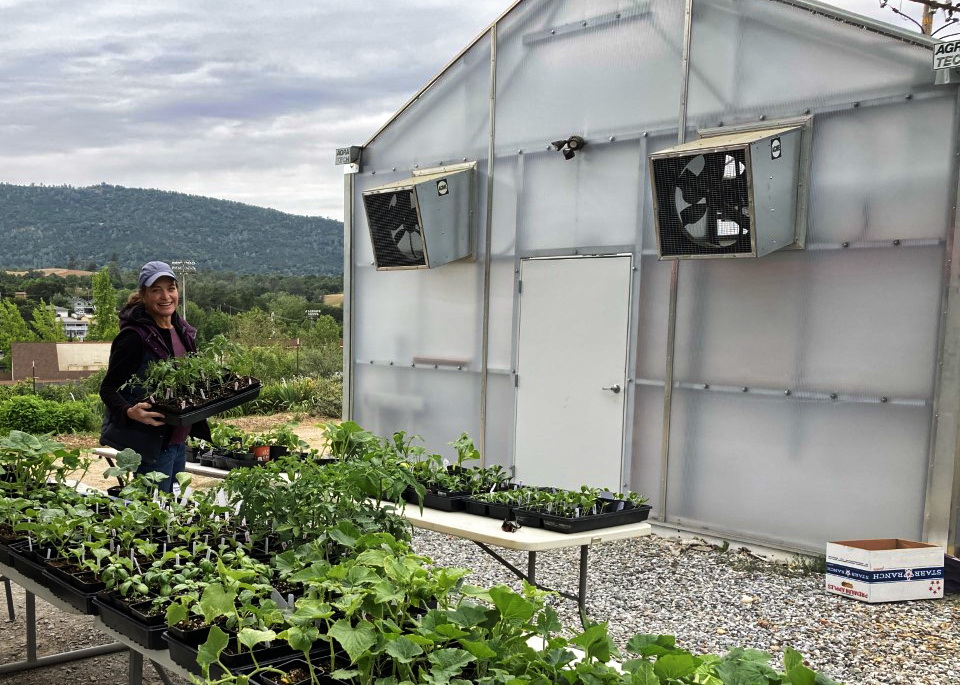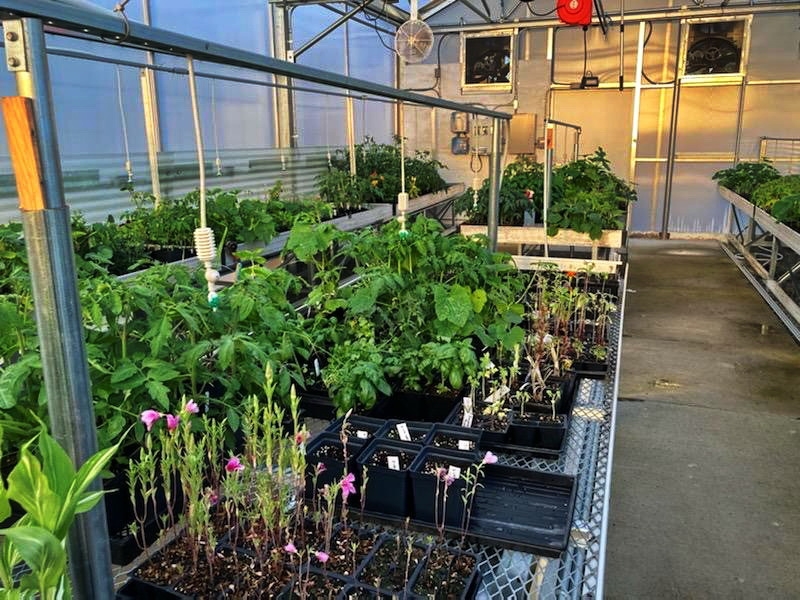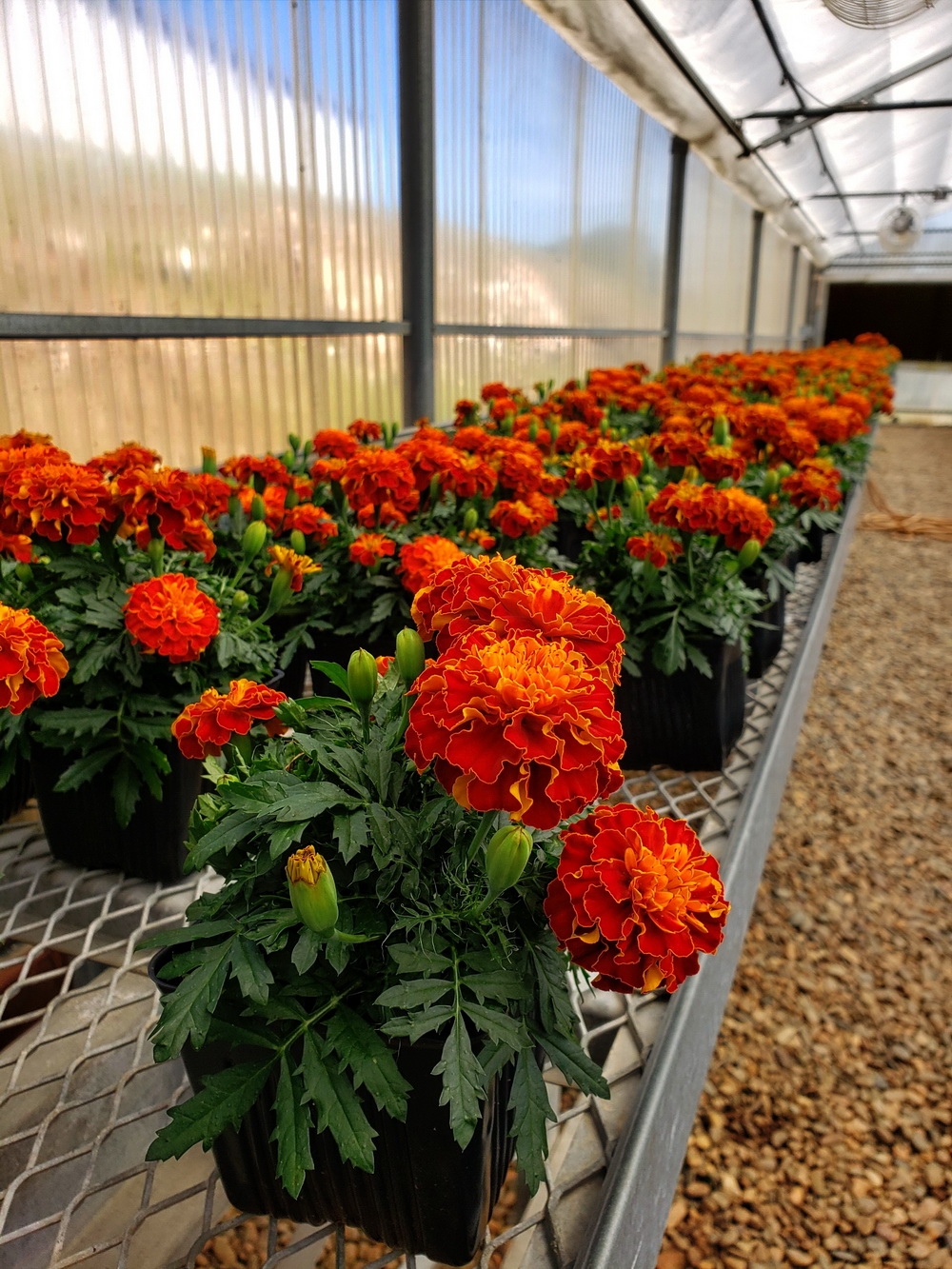
The Calaveras Unified School District (CUSD) recently added a Solar Light greenhouse manufactured by Agra Tech (ATI) in Pittsburg, CA and it is already an integral part of its ag program at Calaveras High School in San Andreas, CA. With multiple uses and more to be developed over time, the CUSD should be used as a national model for how a school can use a commercial greenhouse to teach and motivate students and create the greenhouse farmers of the future.

Inside the Solar Light Greenhouse
Ag Instructor Kevin Hesser (age 49) at Calaveras High is a lifer when it comes to teaching Ag. He started out as an agriculture instructor at the elementary and middle school levels before landing a job at Calaveras High. His wife Autumn is a UC Davis graduate and an elementary level teacher. Hesser oversees more than 120 Ag students and manages a two-acre farm complete with farm animals, such as goats, chickens, pigs, turkeys and lay hens in addition to their new ATI greenhouse.
When Hesser joined the Ag program at Calaveras High, they were using a 50-year-old makeshift greenhouse that was re-vitalized roughly five years ago. “It was falling over and we did everything to keep it in operation and we still use it for seed production in that structure,” he said. “We realized at that time that we needed a new greenhouse and that’s when we started the process with Jim Bergantz, our rep at ATI. Whenever we have questions, James Roberts at ATI responds quickly with accurate information, which has also been a big plus.”

The plants are thriving inside the Solar Light Greenhouse
Last spring, Calaveras High acquired an ATI 18 ft. by 36 ft. Solar Light greenhouse and started calling upon its Ag students to assemble it. “We had AgCon in San Jose, CA doing the prep work, which involved leveling the site and setting pillars, but our students did the rest,” he said. “From August to March, 2-3 of our students worked on the construction of the structure and installed a curtain system, cooling and heating system and a roof vent. It was a great learning experience for all of the students who worked on it and now it looks awesome.”
Started in 2010, under the umbrella of the CUSD Educational Foundation, Gardens to Grow partnered with Calaveras county schools, and other organizations, to support its school garden development and maintenance, garden-based nutrition education and the promotion of Farm to School programs.
The program’s goals are ambitious and inspiring. “Promote and support healthy and sustainable lifestyles, youth development, community involvement and self-reliance in Calaveras and Amador county schools and communities by teaching children and adults how to grow and prepare healthy food,” is their mission statement.

Inside the Solar Light Greenhouse
It's an amazing team effort that includes students, staff, parents and community members as they participate in the process of growing and preparing healthy food, as well as marketing it to generate income for the program. Master Garden and community volunteers, teachers, parents and high school students use the gardens to provide hands-on instruction in sustainable garden practices and environmental and nutrition education to these students.
“Our Master Garden volunteers and Garden Coordinators provide standards based, cross curricular activities during school hours and in after school and summer programs,” Hesser said. “We want our students to get involved on many levels. We allow them to eat what they grow and encourage them to have their own gardens at home.”
The area’s network of school and community gardens in Calaveras and Amador counties are busy literally year-round by providing paid garden/nutrition educator and mentors for the schools; generating income to finance garden construction and maintenance; distributing free plants and seeds to garden programs; developing and supporting adult and youth volunteer programs for gardens; teaching sustainable and organic gardening/farming practices that can be used to grow food in back yards or on a small farm.

The students learn more than how to grow plants, they leave with a can-do attitude
A recent program that has gained momentum revolves around home gardening and the creation of fresh and healthy food. It’s called the “Garden in Every Home” program with more than 300 families participating in the program in which they receive a tray consisting of 4-inch starter plants, including melons, eggplant, basil and several types of squash. At this point, the district has donated more than 1,000 starter plants with seeds and soil donated by local farmers and the community.
Other ways for the school to create revenue is by holding plant sales and sell CSA boxes full with produce created by the students. A recent sale was a huge success, even though it was limited by the COVID19 pandemic.
All of the CUSD schools that currently have gardens or are planning to do so in the near future, include Valley Springs Elementary, West Point Elementary Rail Road Flat Elementary, Toyon Middle School, Calaveras High School, Jenny Lind Elementary, San Andreas Elementary, Mokelumne Hill Elementary, Michelson Elementary and Copperopolis Elementary, Mark Twain Elementary, Argonaut High School, and Calaveras River Academy.
Written by Ed Attanasio
TrustED Advertising
Published on:
07/15/2020
Post by:
Anita Pound
Category:
Controlled Environment Greenhouse
Education
Greenhouse Accessories
Greenhouse Equipment
Greenhouse Structure
Greenhouses
Tag(s):
#Agricultural education
#CUSD Educational Foundation
#Farm to School
#greenhouse farming
#Grow healthy food
#School Greenhouse
"We have worked with Agra Tech and Ag-Con previously, so we’re very comfortable with both companies and know we’ll be getting some of the best service available,” Farris explained. “In fact, Agra Tech has built all of the greenhouses we have here currently, except for the original one that was built back in the 1940s. Working with the Pound family and Jim Bergantz our ATI rep, not to mention all of the amazing folks in their office–it is great to be working with some of the finest and smartest people in the industry today."
Read article Dave Wilson Nursery
Dave Wilson Nursery, LLC
Mike Farris
Greenhouse Manager
Hickman, CA